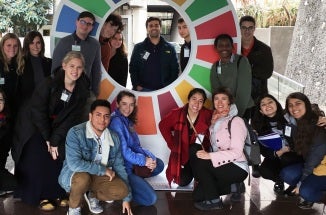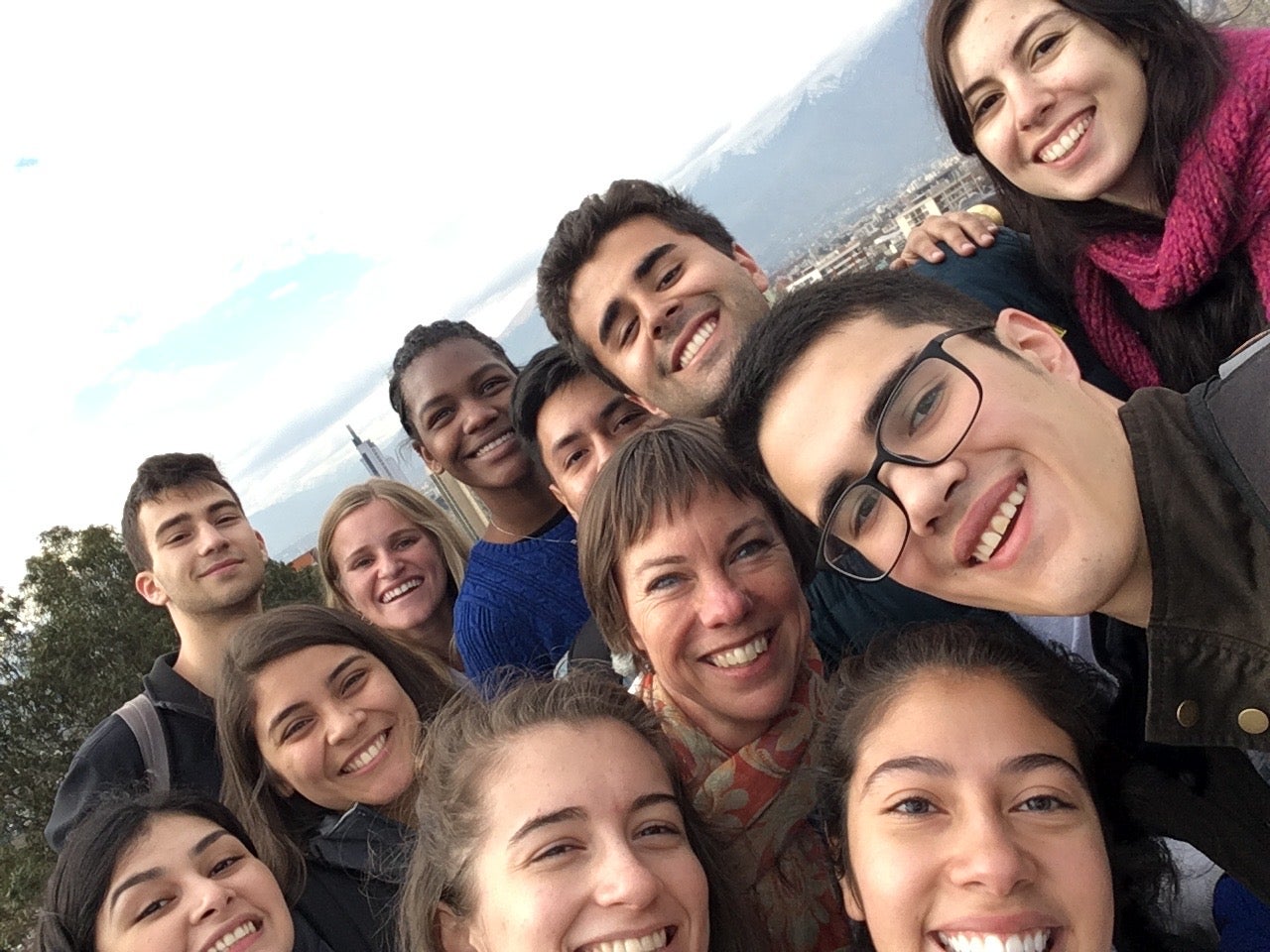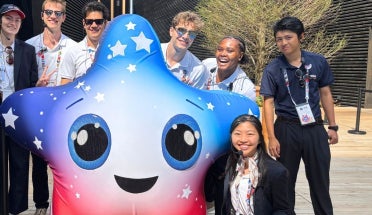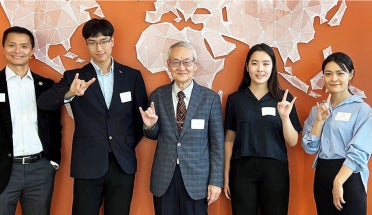
Assistant Professor Stephanie Holmsten Champions Global Learning at UT
- Jul 1, 2021
- Education Abroad
Government assistant professor Stephanie Holmsten is a champion for global learning at The University of Texas. Her involvement in numerous global programs is driven by her devotion to student success and belief that international experiences are essential to understanding real-world issues.
Having joined the university equipped with several years of nonprofit and advocacy experience and a commitment to solving universal issues, Holmsten introduces students to the intricacies of international relations, international political economy and cross-cultural collaboration by facilitating global virtual exchanges, leading programs abroad and conducting global research.
 "Education abroad allows us to experience the complexities of the things we are studying," Holmsten said. "Articles and books can certainly illuminate and provide us with information and may even demonstrate a debate, but we cannot feel those dynamics until we are sitting in the spaces where those debates matter most.”
"Education abroad allows us to experience the complexities of the things we are studying," Holmsten said. "Articles and books can certainly illuminate and provide us with information and may even demonstrate a debate, but we cannot feel those dynamics until we are sitting in the spaces where those debates matter most.”
Holmsten has designed and led in-person and virtual programs in Paris, France; Santiago, Chile; and Panama City, Panama. Each program incorporates meetings with local government officials and social organizations to put in practice real world examples of the students’ IRG curriculum. While she was not able to lead her 2021 Panama program in-person, she successfully pivoted to an online program so students could still receive credit for IRG 320F, stay on track for their degrees and virtually meet with international partners from across Latin America.
Holmsten says the experience allows her students to apply their work and visualize career options in the field.
“It is profound to be in communities and hearing from people that are experiencing these things,” she said. “It gets us out of U.S.-based classrooms. There's something about speaking to audiences outside of the U.S. that really enriches our understanding of the material. Rather than only consuming social science, we begin to actually practice social science by observing where we are, and I see students taking more time to consider where they might fit into that world.”

However, Holmsten recognizes that not every student can leave Texas, so she integrates global learning into students’ classes at UT. For the past three years, she has utilized UT’s vast network and resources to teach a Global Virtual Exchange (GVE) capstone course. The Texas Global initiative promotes cross-continental exchange and fosters meaningful, sustainable and accessible international experiences for UT students by encouraging UT faculty to co-create virtual courses in tandem with faculty from partner universities around the world, incorporating students from UT and their peers abroad into a collaborative online classroom.
Holmsten has also led several GVE faculty learning communities, where she helps faculty implement new GVE courses, learn about resources and connect with other faculty. She says GVE courses enable more accessible global learning opportunities for all students.
“The GVE classrooms bring in new access to information,” she said. “Students build communities where they hear from new voices, so they begin to understand where their own perspectives are shaped and how to broaden their worldviews.”
Holmsten has partnered with higher learning institutions in countries such as Peru, Chile and Ecuador. The combined enrollment of UT students and students at international universities results in a unique blend of perspectives that cultivates a deeper understanding of how different cultures function.
Comprehension and empathy of other cultures is imperative during the ongoing pandemic, Holmsten says. Even though travel is limited, UT’s extensive resources for students and faculty have continued to open new doors for transcontinental collaboration.
“UT’s research is so global that we have avenues of partnerships across countries that have gone on for decades,” she said. “The top-notch research here gives us meaningful connections with faculty members abroad. Through those ongoing relationships, faculty develop interesting opportunities for their students to collaborate on, too.”
Holmsten seeks to resume her education abroad programs in the future, concentrating on areas in Central and South America. She encourages students to take advantage of the diverse opportunities for international engagement on campus.
“I’m so thankful to be here where I can innovate in my classroom,” she said. “I can access the resources at Texas Global to think not only about education abroad, but to draw connections into my Austin-based classroom. There's just so much space to be creative in the classroom along with this remarkable research. I really appreciate UT’s commitment to teaching innovation.”



